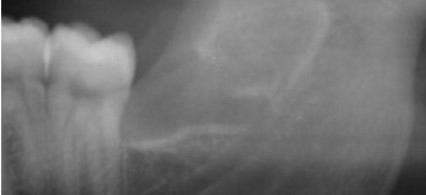Tooth Extraction
Tooth Extraction
- Reasons for tooth extraction include:
- Severe decay: When decay has damaged the tooth to a point where it cannot be repaired.
- Infection: Damage or infection in the tooth or surrounding tissues, which may require extraction to prevent the spread of infection.
- Physical damage: Traumatic injuries that make the tooth unsuitable for remaining in the mouth.
- Chewing problems: Crowded or misaligned teeth that cause difficulties in chewing.
- Prevention: In some cases, removing unnecessary teeth can help improve aesthetics and functionality in the mouth.
- Procedure for wisdom tooth extraction
Extracting a wisdom tooth, or the extraction of wisdom teeth, is a procedure that generally involves several steps:
- Examination and diagnosis: The dentist performs a thorough check-up and may use X-rays to assess the positions of the wisdom teeth and identify any potential issues.
- Anesthesia: A local anesthetic is applied to ensure that the patient does not feel pain during the procedure. In some cases, sedation may also be used.
- Extraction of the wisdom tooth: The dentist uses special instruments to remove the tooth. This includes loosening the tooth from the surrounding tissues and, in some cases, dividing it into smaller pieces to facilitate extraction.
- Cleaning and closure: After the tooth is removed, the area is cleaned, and if necessary, stitches may be placed to close the wound.
- Post-procedure care: The dentist provides instructions for post-extraction care, including details about pain medications and how to maintain oral hygiene.
- Information to provide to the dentist
Before removing a tooth, it is important to provide the dentist with some information about your health history. Here are a few things to mention:
- Medical history: Inform the dentist about any chronic illnesses or health issues, such as diabetes, hypertension, or heart disease.
- Medications: Communicate any medications you are taking, including supplements and over-the-counter drugs, as some may affect the procedure or healing.
- Allergies: Inform the dentist of any allergies, especially to medications, anesthetics, or dental materials.
- History of dental procedures: Share information about any past procedures, such as extractions, crowns, or implants.
- Bleeding issues: If you have a history of bleeding problems, such as hemophilia, inform the dentist.
- Pregnancy: If you are pregnant or planning to take a pregnancy test, it is important to disclose this.
- Psychological issues: If you have anxiety related to dental procedures, letting the dentist know can help provide a more comfortable approach.
This information helps the dentist ensure a safe and suitable procedure for you.
- Conclusion
Wisdom tooth extraction is a common procedure, and with proper care, patients usually recover quickly. It is essential to consult a dental clinic for any concerns and to ensure safe treatment.
Don’t waste time, schedule your appointment for a consultation with our doctors!
Welcome!


Frequently Asked Question
How painful are Tooth Extraction?
You may experience some discomfort during tooth extraction surgery. However, anaesthetic is used to numb the area to minimise the chance that you will feel pain. That said, you will likely start to feel pain after the tooth extraction and for a number of days.



